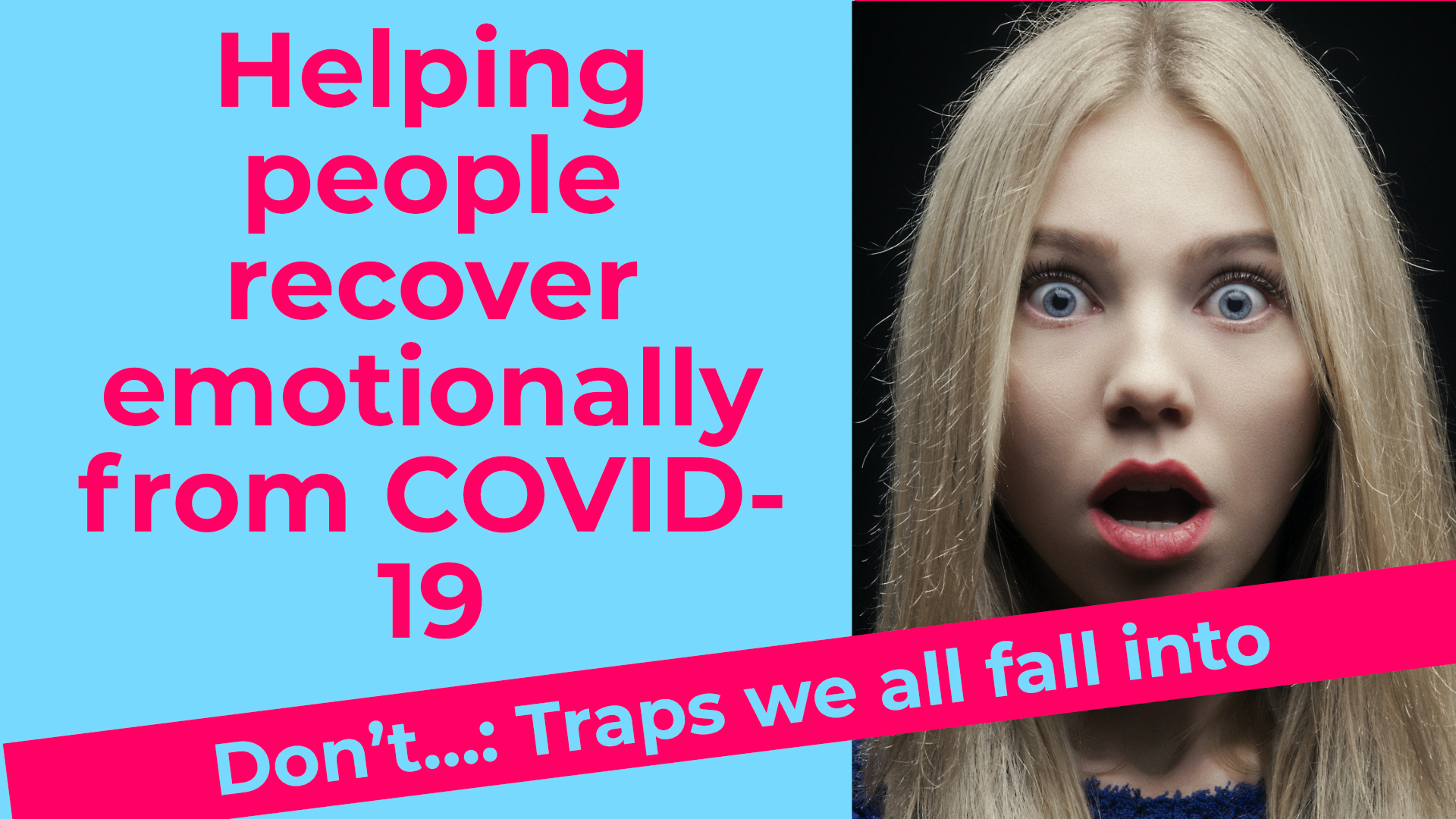Helping people emotionally recover from COVID-19. Part 1.

My great grandmother, Maggie, nursed her five children through a pandemic. One after another, they got sick. Then finally after 2 years, Maggie herself got ill. While the children recovered, she died in bed and they buried her. A statistic of the pandemic maybe, but personal tragedy for my grandfather Ernest, who never recovered from, or processed, this huge trauma.
Ernest never talked about his mother until the day he died, and his inability to process emotions and feelings continued through my family line. This true story motivated me to take seriously the emotional effects of COVID-19.
Ernest was my grandfather.
The year was 1920,
The pandemic was Spanish flu.
My grandfather never spoke of his mother. Ever. So the trauma from that pandemic touched his life and the lives of his descendants. In particular, the closing off of these painful feelings and emotions created a limited capacity to express and regulate emotions that passed along the generations.
As we think about helping each other recover from the emotional effects of the COVID-19 pandemic, we need to do so in a way that brings hope and resolution and avoid making the problems worse either by ignoring our emotions and experience or doing the opposite and probing people about the bad experiences they have gone through.
What do I mean by probing people? I was watching TV one night recently, and the interviewer asked some people about the worst thing they experienced in the COVID-19 crisis. As people responded, I could see the pain in their faces, hear their trembling voices, and I could hear them getting upset and brought back into the fullness of their pain again. The mere opening up of a topic connected to their painful memories and was upsetting them all over again.
Our response may be that we would never do that. However, when I raised this topic, a friend told me of something that happened to David, one of his friends, who was in Christian ministry.
David had gone through a lot of traumas and the leadership of his church decided it was time for him to tell his story and get sorted out. They asked him lots of questions, which opened up lots of traumatic experiences. The well-meaning leaders then made a standard Christian mistake. They assumed that if they talked with him and prayed, then everything would be alright. They assumed that "getting it all out" plus a bit of prayer would fix him. In contrast, instead of helping him, they sent him into a negative spiral of depression.
Why didn't it work? Well, there is no reason that it should work! Neither the Bible, theology or psychology would suggest that it does. It's just a habit. Because listening and praying is a good thing, the leaders assumed it would fix the depth of David's soul. Am I leader-bashing? No, I am saying we need to think a little before we tinker a lot with people's hearts.
People trained in "talking cures" for trauma clearly understand what they are aiming to do and regularly meet clients to take them through the therapy. I once suffered from PTSD and benefitted from that kind of treatment, which took me half-way from trauma to feeling peaceful. Vicars / pastors /therapists / psychologists / counselors / prayer ministers (take your pick) who are trauma aware will only minister to people who they think they can help, they have time to go through the journey, and have a model that works.
The listen + talk + pray + exhort to keep going & have faith model made things worse for David. Because the leaders didn't understand how to help him safely, they made his situation worse and ended up firing him!

It is an understandable, if regrettable, mistake. Don't worry, I am not saying we are powerless or we need to be experts to help people. However, you want to bear certain things in mind when helping people.
- First, events have pushed people over their capacity to cope over the last year. They have experienced trauma. Most people understand this. What is less obvious is that if you begin by asking probing questions about their trauma, they can get re-traumatized all over again. People call this secondary trauma.
- Second, trauma doesn't evaporate. Ignoring the emotional results of COVID-19 will not make any resulting problems go away.
- Third, don't imagine that talking + praying = healing. That is not how "talking cures" work.
- Fourth, there is a way that works. I want to propose a safer model, compatible with Christian teaching and neuroscience; a way that is compatible with the way God has made our brains.
Why should you try this approach? It,
- is safe, teachable & Christian.
- grows peace, joy and people's relationship with God.
- builds capacity so people can share their stories safely.
- is developed by a group of psychologists, psychiatrists, counselors, theologians and pastors and is compatible with the latest understandings of how the brain works.
We look at this approach in the next blog
Sign up to hear when the next post comes live
Part 1 Helping people emotionally recover from COVID-19
Part 2 Three to recover emotionally
Part 4 How to calm down and find peace
#9

